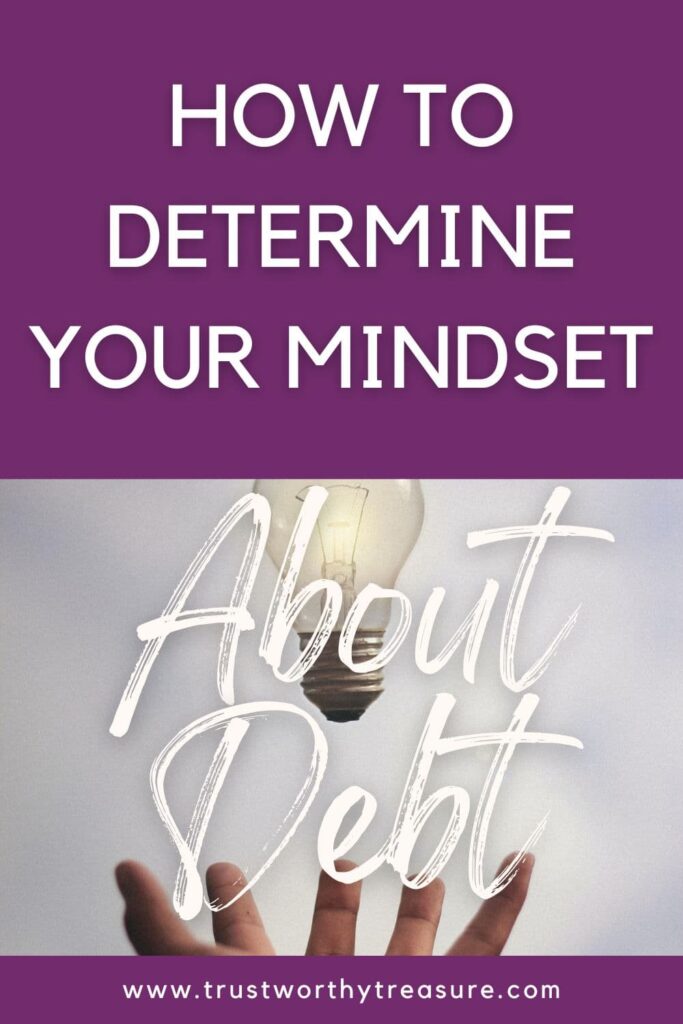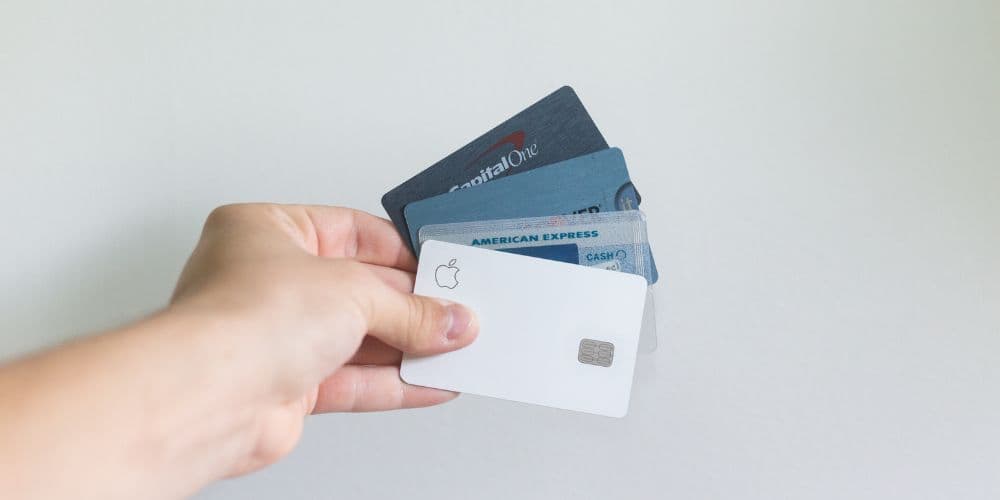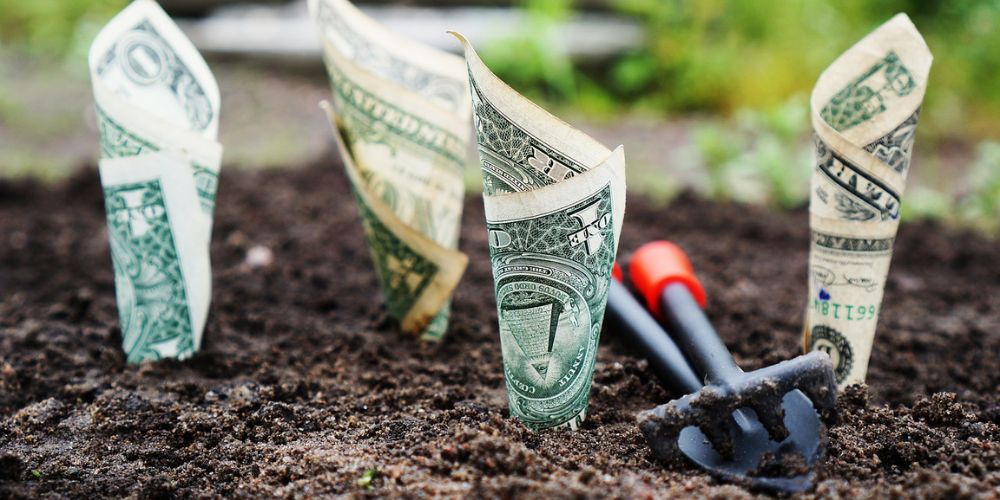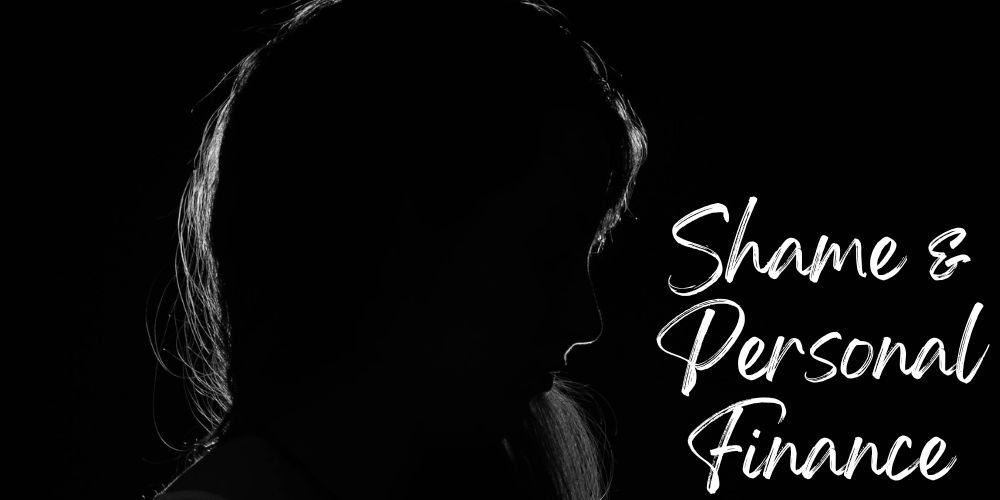How do you view debt?
- It’s a helpful tool.
- It’s just a monthly payment.
- I’m drowning in it.
- Something else?
Debt is a part of most American lives. Whether it’s student debt, credit cards, personal loans, auto loans, or mortgage and home-related loans, the fact is the vast majority of people are carrying a sizable amount of debt.
Often, credit card debt in the teenage years or student debt in the college years begins the journey of debt. We no longer have to “save up” for something if we can “afford” the monthly payment for it. You can finance just about anything, including your living room coffee table!
In this post, I want to encourage you to determine what is keeping you in debt, and how you can shift your perspective to get out of debt.
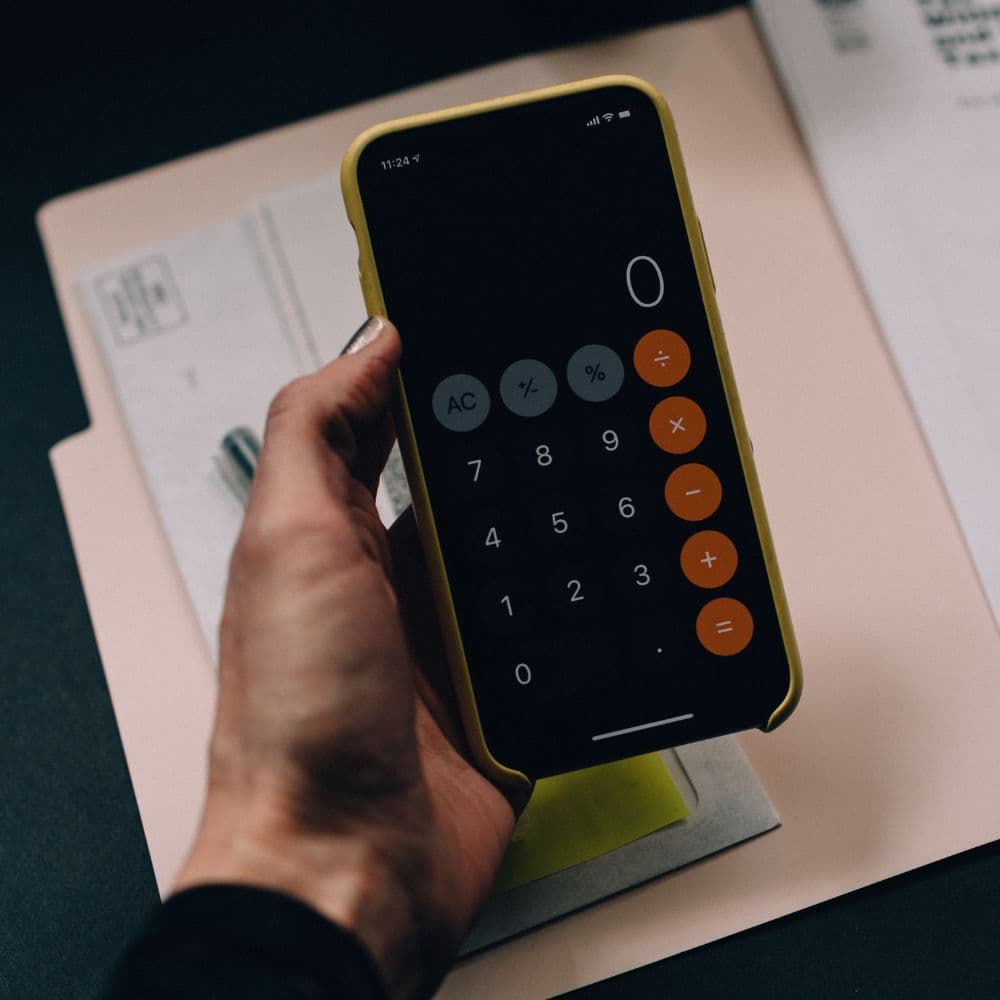
How Much Debt Do I Have?
Debt is any amount of money that you have borrowed and are currently paying back. The most common types of debt are student loans, auto loans, credit card debt, and mortgages.
The average American has $104,215 across all types of debt, however mortgages make up the majority of this number.
According to this article, debt balances tend to increase leading up to retirement, then drop off.
Do you know how much debt you have?
Some Questions to ask yourself if you are in debt
What were you thinking or wanting when you took on that debt?
Did an unexpected situation pop up that you felt you had to pay for immediately?
Did you realize you would have to pay back that debt with interest someday?
Let’s explore these questions and more in determining why you have debt and how you procured said debt.
3 Attitudes that may be keeping you in debt
1 - Feels Like Free Money
Maybe you were browsing online and found some really cute shoes that would be perfect for that upcoming vacation.
Or maybe you need a car. That nice, new car is now affordable with monthly payments.
Debt is so easy to procure because it can feel like free money. In the moment, it feels like there are no strings attached.
You can just buy this thing now and think about it later when there’s the time or money I don’t have now.
How to shift from this perspective
Before taking on any new debt, calculate the interest. Calculator.net has a variety of interest calculators you can use.
Even if you don’t have all the exact information to get an exact figure, a general number is very helpful to have before making any decisions to take on more debt.
2 - Instant Gratification
With credit cards, personal loans, and auto loans, you barely have to do anything other than have your credit pulled to have access to thousands of dollars to spend. Why save up for something when I can get it now and know I can afford the monthly payments?
This mentality can be a slippery slope. It’s easy to keep purchases on a credit card. Maybe it’s time to buy a car, and there’s a loan office right in the car dealership. You could buy a beater somewhere, or buy a nice, reliable car for only $200 a month…for 60 months.
What are the benefits of delaying gratification and not making purchases on borrowed money?
It may not be the most fun or exciting way to live, but borrowed money is not free money. It’s just that- borrowed money.
How to shift from this perspective
Consider your financial goals. Write them down along with creating a written budget.
It’s tempting to satisfy a desire for a purchase, but take a step back and consider if this purchase will impact your overall financial goals.
3 - Take Care of it Later
In a sense, the complete thought is “I want this thing now, so I’ll figure out how to pay for it later”.
Another way this comes up is in a situation of a true emergency, where you need to take on debt to cover the expense.
This can have a detrimental effect on personal finances and budgeting. The monthly payments down the road can linger or default due to a variety of other purchases due to “worrying about it later”.
This is a difficult mindset shift, going from financing to purchasing, but your wallet and your sanity will thank you down the road!
I have found it helpful to build a budget for today while thinking about goals for the future. This helps to look at all my big purchases in terms of how they’ll affect me in the future. That relieves a lot of stress, for sure!
How to shift from this perspective
This is pretty similar to the “instant gratification” attitude. I see the distinction as giving into instant gratification is for wants whereas taking care of it later pertains to purchases you need to make but don’t have the cash for.
The solution is the same. Create a written budget and written financial goals.
I find it helpful to plan for bigger expenses with a “sinking fund” – making monthly contributions to a savings account for a particular purchase.
My Own Experience
Outside of my mortgage, I’ve never been in much debt which I’m very thankful for.
Paying off the mortgage early is a goal for me and my husband. We don’t actually have a deadline in mind, but know that we want to pay it off as early as we can, while also enjoying our life now.
I do use credit cards, but I can’t remember a time I’ve carried a balance.
I think I’m able to use credit cards without carrying a balance because I am naturally a saver and I developed spending habits using cash. It wasn’t until I was in my mid-20s that I got a credit card. I think this helped me be more aware of how much I spend on it.
Debt is not evil, but it can often become a hindrance in our lives.
Choosing to get out of consumer debt is often difficult, but frees up your money down the road.
Shifting Your Perspective About Debt
Even if you plan by creating savings funds for big purchases instead of taking on debt, things may not always go according to plan.
While putting our hope in our finances is ultimately futile, we should be responsible.
That is where planning and budgeting comes into play. Paying off debt has huge benefits – it gives you back control of your money.
Shifting from the perspective of “monthly payments” to “monthly savings for the next big purchase” is going to be freeing.
